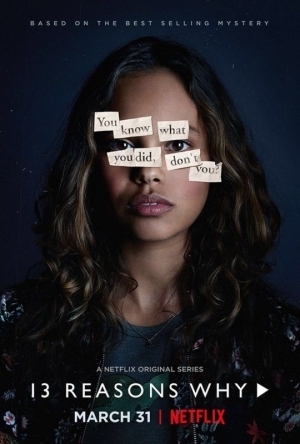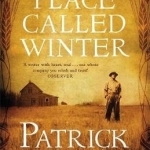
Lean for Sales: Bringing the Science of Lean to the Art of Selling
Sean A. Gillespie, Michael V. Testani and Sreekanth Ramakrishnan
Book
This groundbreaking book describes the Lean journey as it extends to a business area that is mission...
Jas (13 KP) rated 13 Reasons Why - Season 1 in TV
Aug 21, 2017
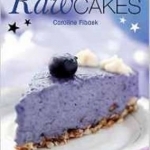
Raw Cakes
Book
Welcome to the sweet life! This book is for people who want to live healthily, but also love...
The International Business Environment and National Identity
Book
Globalisation influences every aspect of post-modern social reality. However, little empirical...
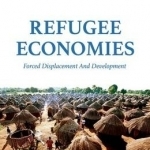
Refugee Economies: Forced Displacement and Development
Alexander Betts, Josiah Kaplan, Louise Bloom and Naohiko Omata
Book
Refugees have rarely been studied by economists. Despite some pioneering research on the economic...
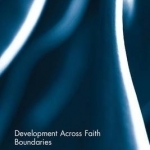
Development Across Faith Boundaries
Anthony Ware and Matthew Clarke
Book
Faith-based organisations (FBOs) have long been recognised as having an advantage in delivering...
Hazel (1853 KP) rated A Place Called Winter in Books
May 28, 2017
Loosely based upon a true story, one of Patrick Gale’s ancestors in fact, A Place Called Winter follows the life of Harry Cane during the early 1900s. The book begins with Harry being transferred from a mental asylum to a therapeutic community called Bethel Ranch. The story then backtracks to Harry’s life as a young, nervous, motherless boy and the time he met his future wife, Winnie.
Throughout the book the reader is trying to guess the reason Harry eventually finds himself at Bethel Ranch. Gale describes Harry’s marriage, his discovery of homosexuality and his move to Canada to his final stop at a homestead in a place called Winter. Does Harry develop a mental illness or is it something to do with his scandalous desires? Or, does something else happen later in the book?
After moving to Canada, Harry does not exactly have it easy and the reader feels for him as he perseveres with his new life style. We watch him grow from a timid young man into someone with his own farm and independence. It makes it all the more upsetting to read when certain things take a turn for the worse.
In this historical novel, Patrick Gale emphasizes on the way homosexuality was regarded in society. Entire families cut people out of their lives at the slightest hint of a scandal. Gale also touches on the techniques used within mental asylums during this period as well as racial discrimination.
Occasionally, the story was difficult to read as it alternated between being really interesting and then slightly dull. Overall, regardless of how much was based on actual events, it was a good storyline, and once you have started reading you feel the need to continue to find out what happens to Harry. I have only read one other book by Patrick Gale – Notes From an Exhibition – that I struggled with a little. A Place Called Winter, however, was a lot better than I was expecting.
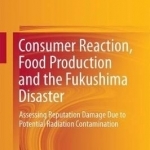
Consumer Reaction, Food Production and the Fukushima Disaster: Assessing Reputation Damage Due to Potential Radiation Contamination
Book
This book examines the factors involved in consumer responses to food produced in regions near the...
Dominique Marie (7 KP) rated Dot and the Kangaroo in Books
Nov 28, 2018
Category: Book set in a place you've never been/want to visit
Back to the Classics Reading Challenge 2017
Category: Book about an animal/or animal in Title
I'm giving this book 4 stars. I enjoyed it so much. Dot gets lost in the Australian Bush and is befriended by a Kangaroo. She meets many creatures while trying to find her way back home. I loved the descriptions of the Bush and the creatures that live there. This is a really good children's book, and the only problem I had with it is that all humans are demonized. There is no distinction made between poachers and those who hunt for food. I have always wanted visit Australia, even though some things about Australia terrify me, for example, killer spiders. I actually used to watch the Dot movies when I was a kid. I had no idea that it was based on this book until I was looking for books to read for the Challenges. I'm really glad I found it!
Acanthea Grimscythe (300 KP) rated Glow in Books
May 16, 2018
The main character of Glow is a young woman of eighteen by the name of Jubilee - but don't you dare call her that! She prefers Julie. After making the ultimate sacrifice for her mother, she spends the summer unraveling the mysteries behind paintings she finds at thrift stores while her best friend prepares for college.
Between each chapter, readers find an epistolary account from the mind of Lydia Grayson. Like her sisters, Lydia is one of the many girls that worked for the American Radium Company (I think I got that right). The Grayson sisters, for those that haven't read The Radium Girls in order to make the comparison, appears to be based loosely on the Maggia sisters, while the company is, obviously, a fictionalized version of the United States Radium Corporation. (Amelia "Mollie" Maggia was the first of the Radium Girls to die.)
Unlike most books that attempt this method, I do not find the switch between perspectives and styles to be detrimental or clunky - if anything, it is inconvenient. Rather than wrap up preceding chapters, Bryant uses these switches to leave Julie's story on a cliffhanger more than once throughout the book. This style can easily be avoided, considering the letters written from Lydia to her boyfriend are interesting enough on their own to propel the reader forward.
While Julie's story offers an plot that appeals to younger readers, I feel Glow would have worked just fine without it. For that purpose, I'm caught between a three and a four on this book. Ultimately, I lean toward the latter and must applaud Bryant on the amount of research she obviously put into writing this book. Julie's story is unbelievable and full of things that I simply have no interest in, but the haunting tale that the Grayson sisters weave is horrifying.
I would like to thank NetGalley and the publisher for providing me with a copy of this book for the purpose of unbiased review.
